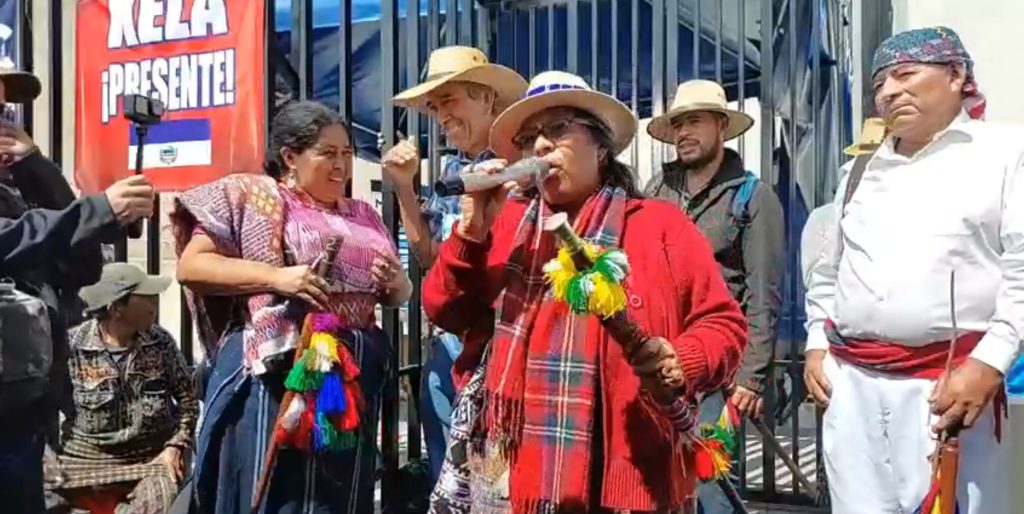Podcast: Play in new window | Download | Embed
In the ongoing election turmoil in Guatemala, thousands of Indigenous groups came out to protest and block highways.
This was in response to actions over the weekend by the country’s justice department to confiscate dozens of containers of voting material. Protesters say it’s an effort to use the judicial system to block a president-elect seeking reform from taking office.
Maria Martin reports.
They held up traffic in at least eight important crossroads in Guatemala.
Thousands of Indigenous protesters blocked highways to defend democracy and fight against what President Bernardo Arévalo calls a “coup in progress” by a corrupt ruling elite.
At another protest in Guatemala City, Indigenous leader Rosa Castro said Guatemalans are tired of rulers who have robbed people of decent health and education, making millions in private profit during the pandemic, and are now trying to pass legislation that would harm Maya communities.
The protesters are calling for the resignation of the attorney general and others involved in what one electoral magistrate called “nothing short of an assault” on democracy.
The influential Maya groups 48 Cantones (48 Villages) say they’re prepared to blockade indefinitely as their one option for having their voice heard.

Musicians perform a blessing song during the Day of Remembrance webinar. (Courtesy The National Native American Boarding School Healing Coalition)
The federal government is taking new steps to preserve the oral history of Native American boarding schools that were run by governments and churches.
The Mountain West News Bureau’s Kaleb Roedel has more.
For more than 150 years, hundreds of thousands of Native American children were forced to attend boarding schools created to strip them of their culture.
The children’s hair was cut off, their traditional clothes were burned, and many were beaten.
Now, the government is giving nearly $4 million to a coalition focused on boarding school healing.
The group will create a collection of survivors’ stories – testimonies that tribal governments, policymakers, and the public can access.
The group also wants Congress to establish a commission to investigate and document the past injustices of boarding school policies.

U.S. Rep. Sharice Davids speaks during the Day of Remembrance webinar. (Courtesy The National Native American Boarding School Healing Coalition)
U.S. Rep. Sharice Davids (Ho-Chunk/D-KS) spoke about that proposal in a recent webinar.
“We can make sure that this legacy, this history, the full truth of these policies is not just acknowledged, but that we do something to start to address that chapter of our legacy.”
So far, the commission bill has not passed either chamber in Congress.
 Three Democratic U.S. lawmakers have introduced legislation to officially recognize the second Monday of October as Indigenous Peoples’ Day on the federal level.
Three Democratic U.S. lawmakers have introduced legislation to officially recognize the second Monday of October as Indigenous Peoples’ Day on the federal level.
U.S. Sens. Martin Heinrich (D-NM) and Ben Ray Luján (D-NM), and U.S. Rep. Norma Torres (D-CA), introduced the bill.
The bill would also replace any mention of Columbus Day in all federal laws or regulations with Indigenous Peoples’ Day.
According to the lawmakers, more than a dozen states across the country have already made this change, including New Mexico.
The lawmakers say recognizing Indigenous Peoples’ Day as a federal holiday is a step to address generations of trauma and inequity.
Tribal leaders and executive officers of Native organizations are among those supporting the bill.
In the Senate, the bill is cosponsored by 11 Democratic Senators who often advocate for Native issues, including members of the Senate Indian Affairs Committee.
Get National Native News delivered to your inbox daily. Sign up for our newsletter today.



